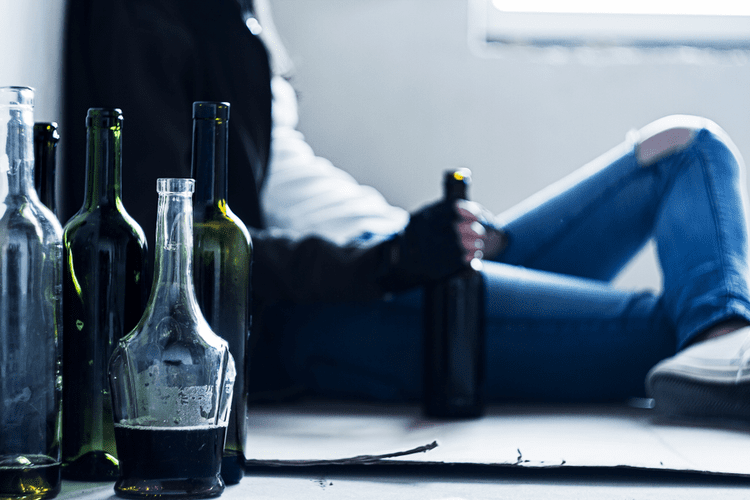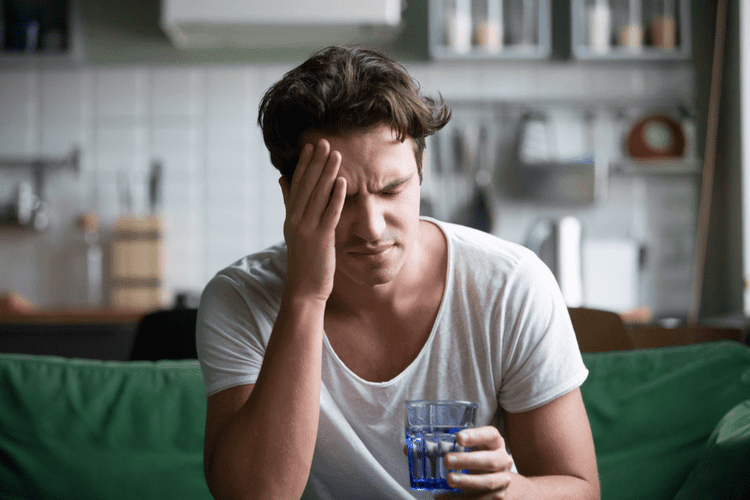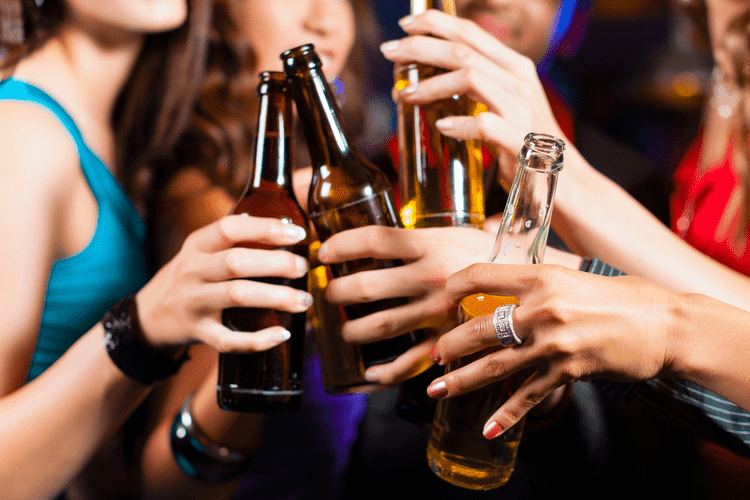Content
Contact us today to learn about alcohol rehab treatment programs that can help. When you have diabetes, it is important to carefully monitor your blood sugar levels as directed by your doctor. Blood sugar can swing from too high to too low in diabetics. Blood sugar that is too high is called hyperglycemia, while blood sugar that drops too low is called hypoglycemia. Although your doctor will tell you what your specific blood sugar goal range is, generally, a target blood sugar range is 80 to 130 mg/dL if you are testing your sugar on an empty stomach.

Neuropathy, in addition to other factors (e.g., vascular disease in the penis or altered hormone levels), also may contribute to impotence, which is a common and troublesome complication in diabetic men. Several mechanisms may contribute to alcohol-induced increases in triglyceride levels. First, alcohol likely stimulates the generation of VLDL particles in the liver, which are rich in triglycerides.
Drinking Alcohol Can Lead To Serious Low Blood Sugar Reactions
Keep an eye on your hydration by checking that the color of your urine is light yellow, Zanini says. If you have type 2 diabetes, this means taking sugary drinks — such as regularsoda, sweet tea, and even juice — off the table and replacing them with low-sugar and sugar-free options, including water.
How to Drink Responsibly with Type 1 Diabetes (and Enjoy It!) – Healthline
How to Drink Responsibly with Type 1 Diabetes (and Enjoy It!).
Posted: Sun, 15 Mar 2020 07:00:00 GMT [source]
Even the morning after a night of drinking, you can find yourself craving greasy, heavy foods. It’s also pretty unlikely you’ll want to exercise that can diabetics drink alcohol day, too. Even regularly drinking just one or two glasses of wine a night can have a large impact on your motivation to exercise the next day.
What To Know About Alcohol And Diabetes
Most people with diabetes can enjoy an occasional alcoholic drink. Each alcoholic beverage takes between 1 and 1.5 hours to finish processing in the liver. The more alcohol a person consumes, the higher their risk of experiencing low blood sugar levels. This process “puts people with diabetes at high risk of low blood sugar when they drink,” Arevalo said. Moderation is key in drinking alcohol whether you have diabetes or not.
Alcohol can also affect other medical conditions you may have, like diabetic nerve damage, diabetic eye disease, and high blood triglycerides. Get guidelines for alcohol use from your medical provider. People with type 2 diabetes should follow the same rules as those with type 1 diabetes. Always have a way to test your blood sugar with you, and be safe. Do not consume alcohol when your blood sugar is out of range . Alcohol impairs your ability to “feel” your blood sugar changing and could result in a dangerously high or low blood sugar. And avoid choices like dessert wines , alcoholic ciders, and cocktails mixed with tonic, sour mix, juice, and soda.
Can I Have A Drink? Alcohol And Your Diabetes
Those enzymes are secreted directly into the gut to ensure effective food digestion. The second function is the production of several hormones. Two of the hormones (i.e., insulin and glucagon) are potent regulators of blood sugar levels.
Have a no-calorie drink with a meal, or alternate an alcoholic drink with a nonalcoholic drink . From saucy skillet dinners to simple vinaigrettes, these are the top 20 recipes people clicked on most in 2021. Featuring a range of soups, sides and entrées, these recipes kept us healthy, satisfied and satiated all year long. Recipes like our Salmon with Sun-Dried Tomato Cream Sauce and Spinach & Mushroom Quiche are so delicious, we plan to keep them in rotation next year, too.
Drink Artificially Sweetened Drinks
If you have complications related to your diabetes, you should be more careful about your alcohol intake. More than three drinks a day can worsen diabetic retinopathy. And even if you have fewer than two drinks per week, you can increase your risk of nerve damage . Alcohol can also raise levels of fat called triglycerides in the blood. According to a study by researchers at the Harvard School of Public Health, women with type 2 diabetes who drank relatively small amounts of alcohol had a lower heart-disease risk than those who abstained.
- People with diabetes or other blood sugar issues must be careful when consuming alcohol.
- Drinking moderately isn’t likely to lead to type 2 diabetes, but excessive drinking over time can be a trigger for its development.
- Moderation is key in drinking alcohol whether you have diabetes or not.
- If you do choose to drink, there are no specific recommendations for one type of alcoholic beverage as better than another.
- While this disease is rare, it can be deadly if not treated properly.
People with diabetes who plan on drinking alcohol should check their blood sugar levels before and up to 24 hours Transitional living after drinking. They should also check these levels at bedtime to ensure that they are stable before sleeping.
What Type Of Alcohol?
It is illegal for people under 21 to drink alcohol in the United States. A 4-ounce serving contains just one carb and about 78 calories.

It is best to follow daily recommended consumption limits. Below is the alcohol content in some common alcoholic drinks, according to the CDC. Some medications are not suitable for use alongside alcohol consumption. People with diabetes should be sure to pay attention to any potential warnings. In an average person, the liver breaks down roughly one standard alcoholic drink per hour. Any alcohol that the liver does not break down is removed by the lungs, kidneys, and skin through urine and sweat. There are a number of spirits, liqueurs, mixers, and other alcoholic beverages that are high in sugar and should be avoided.
Risks Of Alcohol In Type 2 Diabetes
Instead, glucose builds up in your blood, raising your blood sugar levels. If you have diabetes and want to drink alcohol, there are strategies you can use to drink more safely, such as regularly checking your blood sugar. Diabetes is one of the most common diseases in the United States, impacting around 10% of Americans. Alcohol use is also very common, with almost 86% of Americans stating they have had alcohol at some point in the past and nearly 55% having had alcohol over the past month. People who have diabetes may have the desire to drink alcohol, just like anyone else. However, drinking alcohol can have an impact on diabetes, so it’s important to be careful when drinking if you have a diabetes diagnosis. Alcohol makes your blood sugar levels drop by inhibiting the liver’s ability to release glucose.

Alcohol can also cloud your judgement, so you may not realize that your blood sugar is low. People with diabetes do not need to cut alcohol out of their diet. As a matter of fact, many studies have suggested that light drinking may be beneficial to diabetes, including a recent study from China that’s been in the news. However, there are some important safety considerations for people with diabetes. Chlorpropamide is a medication used to treat type 2 diabetes by increasing pancreatic insulin secretion. Some people treated with chlorpropamide experience an unpleasant, disulfiram-like reaction5 after drinking alcohol. This happens because the liver stores carbohydrates and releases them into the blood between meals and overnight to stabilizes blood sugar.
What Is Alcohol Induced Hypoglycemia?
Chait A, Mancini M, February AW, Lewis B. Clinical and metabolic study of alcoholic hyperlipidaemia. Boden G, Chen X, Desantis R, White J, Mozzoli M. Effects of ethanol on carbohydrate metabolism in the elderly. Most importantly, if individuals wish to engage in moderate drinking, they should first discuss it with their doctor. The below information can help someone adhere to the one-drink-per-day limit for females and the two-drinks-per-day limit for males. Learn more about the risks of chronic heavy drinking here. According to the National Diabetes Statistics Report 2020, 34.2 million people in the United States had diabetes in 2018. The percentage of the population with diabetes increases according to age, reaching 26.8% in adults aged 65 and older.
